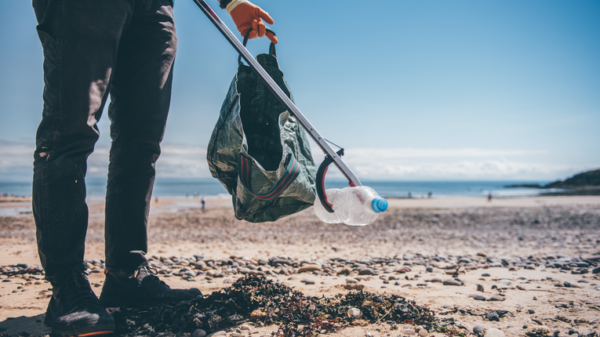Results have been collated, analysed and now released from the 2022 MCS beach cleans. 5,261 dedicated volunteers took part in the Marine Conservation Society’s ‘Great British Beach Clean’ in 2022.
Around 30 miles of beach was cleaned across the UK with litter items recorded over the ten days with volunteers helping to pick up over 141,048 pieces of litter, weighing in almost 4,000kg.
The charity said in its news release that:
- In positive news, the average litter recorded per 100 metres is dropping year-on-year across the UK. An average of 369 items were found in 2022, compared to averages of 385 in 2021, 425 in 2020, and 558 in 2019.
- In other good news, although cigarette stubs are still being found on 60% of cleans, their numbers have decreased by 25% since 2021.
- Unfortunately, 93% of beaches around the UK found drinks-related litter (including glass and plastic bottles, cans, caps and lids), backing our longstanding call for a Deposit Return Schemes to be introduced to tackle this form of ocean pollution.
- Wet wipes and sanitary items have seen a huge increase of 77%, particularly in Scotland.
‘Deposit Return Schemes urgently needed’
Credit: Billy Barraclough
Dr Laura Foster, Head of Clean Seas at the Marine Conservation Society said, “It’s good news that litter levels are dropping, albeit slowly, and we know that governments’ actions have been shown to be highly effective, from introducing carrier bag charges to the banning of certain single-use plastic items.
These small changes have resulted in notable differences in the amount of these types of litter found on our beaches. However, there is a worrying increase in the amount of glass pieces being found, suggesting that glass is now frequently being littered.
The results from this year’s Great British Beach Clean revealed drinks-related litter featured in the top five most common items for each country and came sixth overall for the UK. There is a solution to these high levels of litter – implementing Deposit Return Schemes (DRS) throughout the UK.”
Further information can be found on the Marine Conservation Society website here.

No Comment